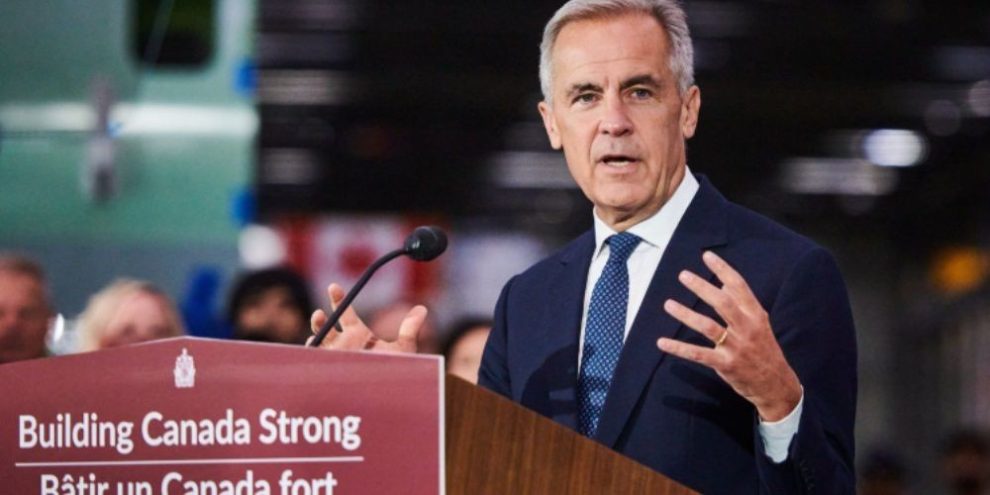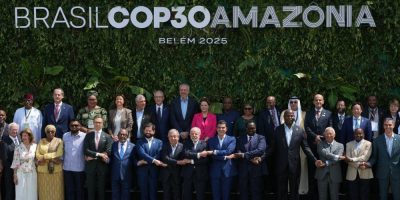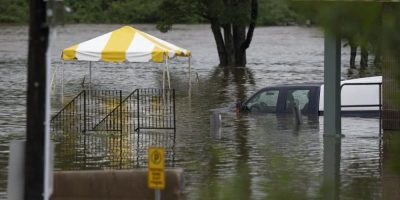
Prime Minister Mark Carney would not say Monday whether Canada will meet its climate goals under the Paris agreement by 2030, as his government faces criticism over his emission-reduction plans.
Carney, who was in St. John's Monday announcing tariff relief measures for Atlantic Canada businesses, was asked by reporters how Canada is planning to adjust its climate change targets, after recent policy announcements dialed back some of the Trudeau government's climate initiatives.
On his first day in office in March, Carney eliminated the consumer carbon price. On Friday he delayed the electric vehicle mandate for at least a year. Carney has said he plans strengthen the industrial carbon pricing system but has yet to explain how.
Carney did not directly answer the question about Canada's climate targets and instead pivoted to the competitive advantages of a low-carbon economy.
"We see becoming low-carbon in any industry as being a key driver of competitiveness," Carney said, adding he'd have more to share in the coming weeks.
"So that focus on what can we do in order to drive emissions down in a way that makes the country more competitive is crucial."
He pointed to offshore oil and gas as a low-carbon alternative to conventional extraction and suggested his government's push to double housing construction over the next decade will lead to more energy efficient homes.
"And all of that will get our emissions down and make us more competitive. So that's the focus of the government," Carney said, without addressing how those lower emissions would compare to Canada's targets.
"The government is focused on results."
Canada has a legal requirement to achieve net-zero by 2050 after legislating it in 2021. Part of its path to get there is a plan to cut emissions by 40 per cent below 2005 levels by 2030 — a commitment set out in the Paris agreement.
But while the government has yet to say whether it will miss its target — or whether it's still trying to achieve it — observers have raised doubts.
A report last year from the federal environment commissioner said Canada was not on track to meet its 2030 target. Jerry DeMarco estimated Canada's emissions had only dropped seven per cent below 2005 levels.
On Friday, after Carney delayed implementing the electric vehicle mandate by a year to give Canada's automakers some liquidity, Green Party Leader Elizabeth May questioned his climate intentions.
"Carney’s first hundred days show us clearly that he is rolling back climate action at every turn. Scrapping the carbon price, dismantling legislation, cancelling the EV mandate, these are not the decisions of a leader serious about the climate emergency," she said in a statement.
Industry Minister Mélanie Joly also sidestepped a question on Monday about whether the government is committed to its 2030 target, deferring instead to Environment Minister Julie Dabrusin for comment.
"We want to make sure we find ways to be net-zero by 2050," Joly said.
The Canadian Press asked Dabrusin's office for comment on Canada's 2030 targets but has not yet received a response.
This report by The Canadian Press was first published Sept. 8, 2025.





